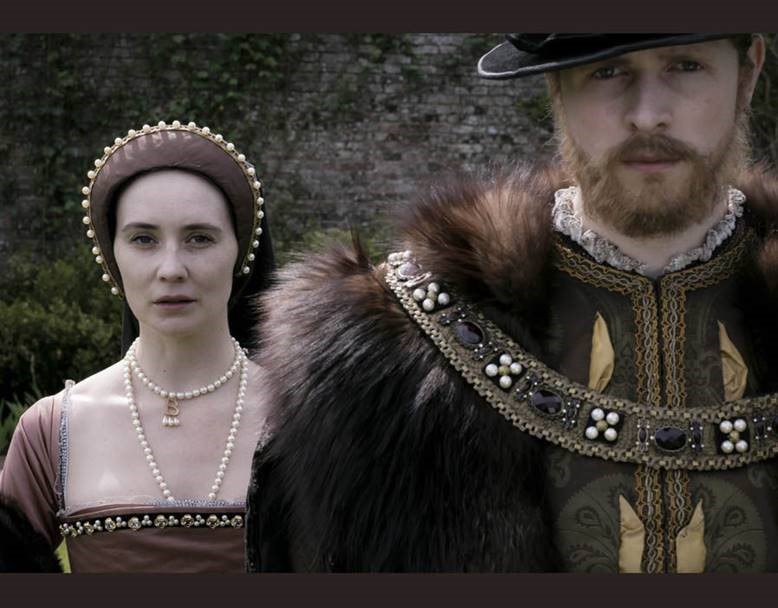Six Wives with Lucy Worsley: Episode Two (A Review)

The big question – could Episode Two of Six Wives with Lucy Worsley possibly live up to Episode One? In my opinion, it didn’t quite manage it.
The format still worked very well - Lucy, an insignificant maid at the Tudor court overhearing conversations, and seeing Henry and his wives in their private lives. Incidentally, the way the maid becomes a part of the furniture helps us to understand how so much informing and spying on each other took place, as evidenced by contemporary correspondence. The servants were as good as invisible.
What also came across extremely well was Henry’s terrifying changeability. Often mentioned by ambassadors, the King was so changeable that you could never be sure of your ground – what he agreed with one day, he completely reversed his opinion about the next.
The hard thing to portray, and I am not sure it has ever been done well on screen (except perhaps in Anne of the Thousand Days) is the sheer physical desire that Henry must have felt for Anne. The overwhelming passion that led him literally to change the world to have her by his side – discarding a wife and daughter he loved, destroying a thousand years of religious tradition, risking alienating all of his nobles, only a generation after the Wars of the Roses – that did not really come across.
Lucy Worsley emphasises that Henry’s discarding of wives was all about having a son to secure the succession, and that gave legitimacy, in his own mind, to his actions. No serious historian could question that: if Katharine’s son had lived, Henry would not have sought an annulment – but the human craving for Anne as an individual played its part. There was no frisson at all of sexual chemistry between Henry and Anne to give colour to the situation.
Jane Seymour was portrayed well. Her position as Henry’s queen must have been the most terrifying of all. Although Anne was frightened when she knew the king no longer loved her, the idea of a trial and execution could not have entered her mind – such a thing had never happened before. She would have feared an annulment and banishment. For Jane, there was the very immediate example of Anne’s beheading. The scene when Henry reminds her of it was well portrayed. Jane, desperate to stand up for her principles, is sharply cut off with a brusque order to remember what had happened to Anne and retreats, swallowing nervously.
The episode ended on a more sympathetic view of Henry, bathing Jane’s face as she suffered with childbed fever – the only act of human kindness he has shown so far.
So – Episode One, ten out of ten, Episode Two, perhaps eight out of ten.
Watch a short clip from Episode Two - Scandal at Court - here
